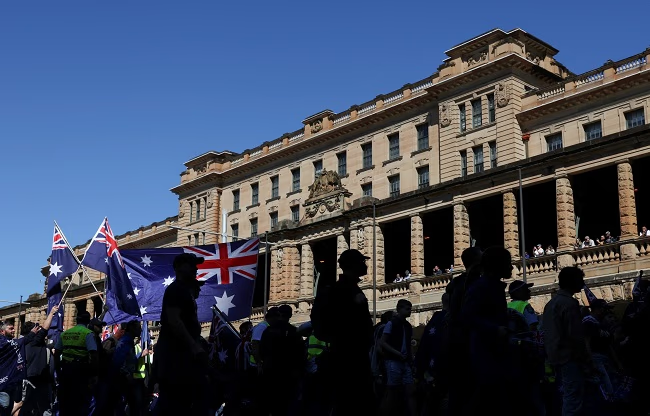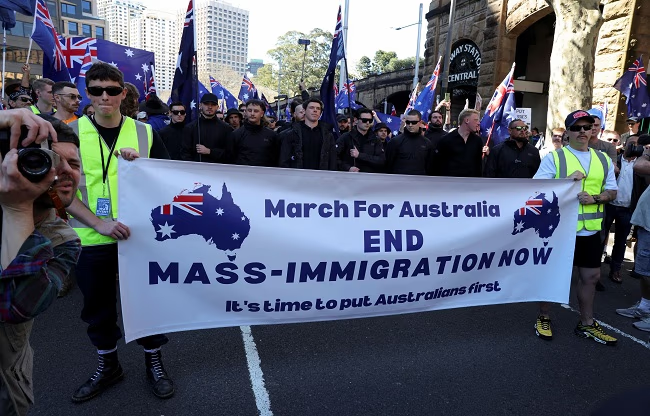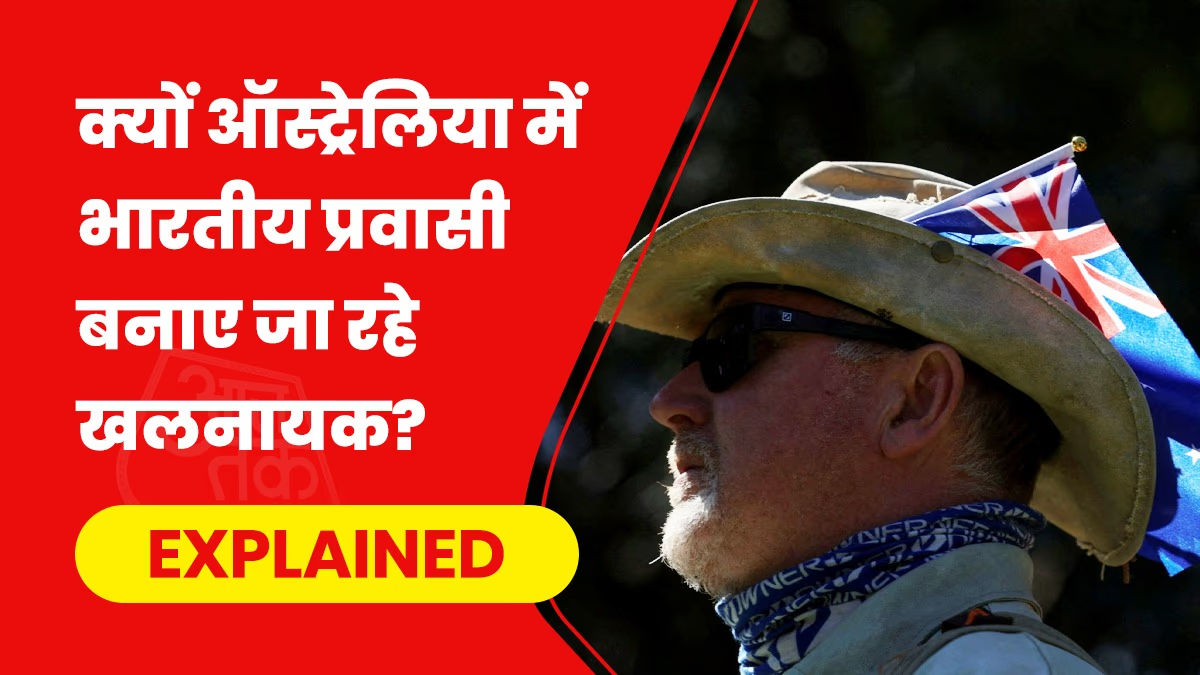In recent times, developed countries have become more vocal about immigrants. Countries like France, Germany, and the USA complain about both legal entries and illegal infiltration. To curb this, measures like deportation are in place, and hate crimes have surged so people reconsider migrating. Australia, too, is part of this narrative, but with notable discontent directed towards Indian immigrants.
There was a large protest against immigrants in Australia on Sunday, particularly in Sydney and Melbourne. Protestors filled the streets and the government attempted to downplay the issue by labeling it as neo-Nazi protests.
The most striking feature of the protest was the significant opposition to the Indian community. A group called 'March for Australia' is spearheading this anti-immigrant movement. Their manifesto argues that more Indians have arrived in the last five years than Greeks and Italians combined in a century. Native Australians claim their children struggle to find homes or face long hospital waits in their own country.
As the population grows, services are stretched, but why the resentment towards Indians? This trend isn't just seen in Australia; it's evident in numerous Western countries.

Source: aajtak
Let's first focus on Australia. According to the 2021 census, Indians constitute only 3% of the country's population. The largest group are those of British descent. Indian, Chinese, and New Zealand immigrants follow in that order. Years ago, Sydney and Melbourne began seeing more foreign arrivals. The 'White Australia Policy,' which lasted nearly seven decades, aimed to populate the country with Caucasian individuals only.
This policy obstructed Asians and Africans from obtaining visas or citizenship. During the 1960s, global dynamics shifted significantly, and nations united against racial discrimination, putting pressure on Australia. But this wasn't the only reason. Australia needed both skilled and unskilled workers, needs that India could fulfil. Once the policy was lifted, opportunities opened.
By 1973, Indians officially began migrating and settling in this primarily Caucasian nation. Even today, Sydney remains selective about its immigrants. In 2006, a significant policy change made it easier for Indian students to arrive and gain permanent residency. Consequently, the Indian population surged, and they might soon outnumber the British residents there.

Source: aajtak
As Indian presence on streets, in workplaces grows, so does resentment in Australia. Although the government doesn't provide separate hate crime data for groups, Indian government data shows that over 90 Indian students faced hate based on foreign identity within five years from 2020. Four incidents happened in Australia, with one resulting in a fatality. Slogans like 'Go Home' mar temple walls in Melbourne.
Why Is This Happening?
The rapid growth in Indian immigrants over the years suggests that they might soon outgrow the British population. When a community expands and becomes visibly distinct, others might feel economically and culturally insecure.
Social media also perpetrates algorithmic racism. When posts against a community get repeatedly shared, algorithms treat them as popular and show them more often, spreading hate swiftly. For example, social platforms claim Indians are one of the most hated communities, a structured hate campaign increasingly viewed as truth.

Source: aajtak
Another source of anger is the appearance of Indian immigrants. People from India, Pakistan, and Bangladesh often look similar. For residents in Europe, the USA, or Australia, distinguishing among them is difficult. Consequently, if there's a crime or issue involving South Asians, suspicion immediately falls on Indians, exacerbating anger.
The world is leaning towards extremism. Neo-Nazi groups have gained momentum in Sydney and Melbourne in recent years. These groups oppose immigrants, particularly Asians and Indians. In March this year, another protest occurred with racist slogans. Despite claiming these groups pose a national security threat, local authorities have taken no action.
Apart from Australia, much of the West holds grievances against Indians, including the UK, the USA, and many European countries. This arises from a mindset of 'why are they more successful.' Indians are perceived as well-educated and successful, intimidating locals. Some influential figures panic over the rising economic and political influence of Indians, leading them to view immigrants as competition rather than cultural enrichment, transforming insecurities into anger.




